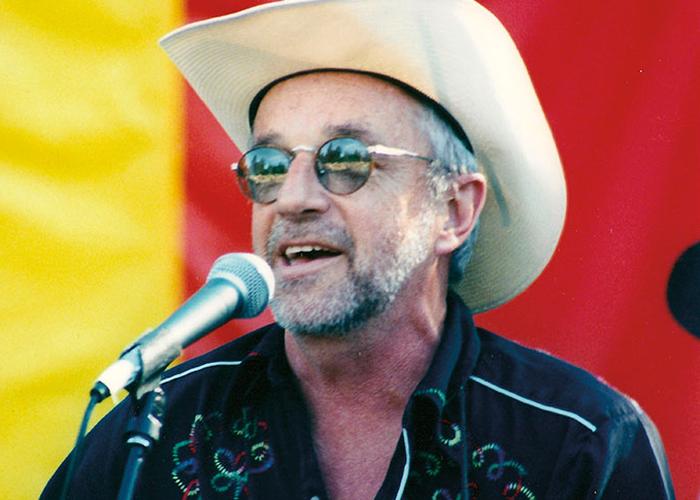Lavender Country is the present day reincarnation of the original Lavender Country band, led by original frontman Patrick Haggerty.
Widely recognized as the first openly gay country music album—and cited as such even by Nashville institutions like the Country Music Hall of Fame and CMT—the landmark self-titled 1973 LP by Lavender Country stands as nothing less than an artifact of courage, a sonic political protest document of enormous power, clarity, and grace.
At once a scathing indictment of the injustices perpetrated on the homosexual community, a proud proclamation of gay identity, and a love letter of bracing intimacy and eroticism, the album radically appropriates the signifiers of the conservative country genre, queering its heteronormative vocabulary into a deeply personal language. Songwriter, singer, and guitarist Patrick Haggerty, a fearless first-generation gay liberation activist and artist, seasons his ...
Show the rest
Lavender Country is the present day reincarnation of the original Lavender Country band, led by original frontman Patrick Haggerty.
Widely recognized as the first openly gay country music album—and cited as such even by Nashville institutions like the Country Music Hall of Fame and CMT—the landmark self-titled 1973 LP by Lavender Country stands as nothing less than an artifact of courage, a sonic political protest document of enormous power, clarity, and grace.
At once a scathing indictment of the injustices perpetrated on the homosexual community, a proud proclamation of gay identity, and a love letter of bracing intimacy and eroticism, the album radically appropriates the signifiers of the conservative country genre, queering its heteronormative vocabulary into a deeply personal language. Songwriter, singer, and guitarist Patrick Haggerty, a fearless first-generation gay liberation activist and artist, seasons his songs with Yippie deviousness; in the manner of the Cockettes, the laughs both sharpen and sweeten the impact. To our ears the inimitable aesthetics and glimpses of cockeyed humor recall some ethereal psych-folk nexus of the Flatlanders and the Holy Modal Rounders as much as any standard country and western forebears, rendering the biting poetry in an even more otherworldly and timeless light.
The record reflects Haggerty’s experiences: his upbringing on a tenant dairy farm in rural Washington, on the Canadian border; his dismissal from the Peace Corps on the spurious grounds of his sexuality; and his righteous struggles as an outraged young gay man navigating the Pacific Northwest in the immediate aftermath of Stonewall. He designed Lavender Country as a vehicle for what he deems “The Information”: valid cultural communications intended to resonate with those unable to access similar resources. (Playing “Cryin’ These Cocksucking Tears,” one of the indisputably greatest country song titles ever, cost a brave Seattle DJ her FCC license.)
Hide the rest















